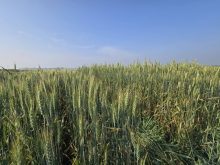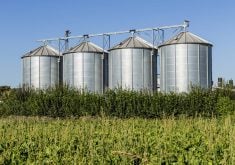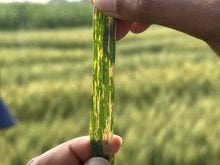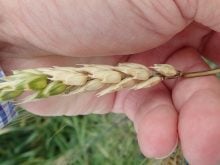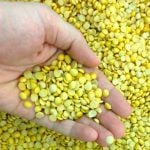Viterra Inc. said March 10 it returned to profit in its first quarter thanks to solid fertilizer demand and a contribution from its recently acquired Australian operations.
Shares of the Canadian grain handler, which completed its takeover of Australia’s ABB Grain in September, rose 2.5 per cent, even though its earnings fell short of expectations, as the results eased some of the uncertainty surrounding the deal.
Viterra’s Profit for the three months ended Jan. 31 came in at $10.7 million, or three cents a share, compared with a loss of $33 million, or 14 cents a share, a year earlier. Revenue rose 29 per cent to $1.8 billion.
Read Also

How much nitrogen can farmers really cut?
Manitoba fertilizer trials look for nitrification inhibitor sweet spot, to lower greenhouse gas emissions and cost without hurting yield.
Analysts, on average, had expected earnings of six cents a share on revenue of $1.9 billion, according to Thomson Reuters.
The quarter was the first to fully reflect the acquisition of ABB Grain. The deal put Regina, Saskatchewan-based Viterra among the world’s top grain handlers with supply sources in both the Northern and Southern hemispheres.
Demand by North American farmers for fertilizer was sluggish during much of last year due to high prices, but volumes there rose 15 per cent in the latest quarter.
Viterra’s agri-products segment generated revenues of C$215.3 million, up 13 per cent.
North American grain shipments for the quarter were 3.6 million tonnes, down five per cent from the year-earlier quarter.
V iterra received 6.2 million
tonnes of grain in South Australia for storage, but the company said farmers were reluctant to sell during harvest due to low commodity prices.




